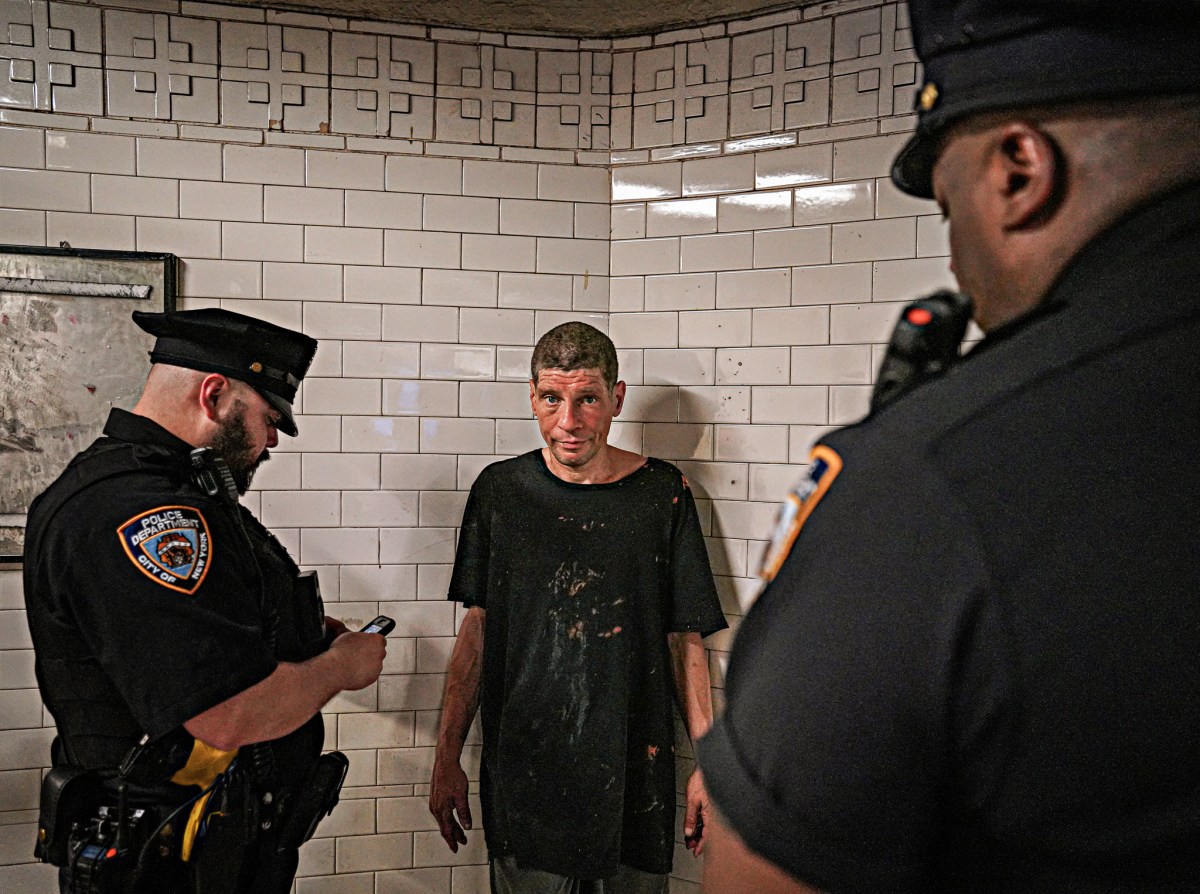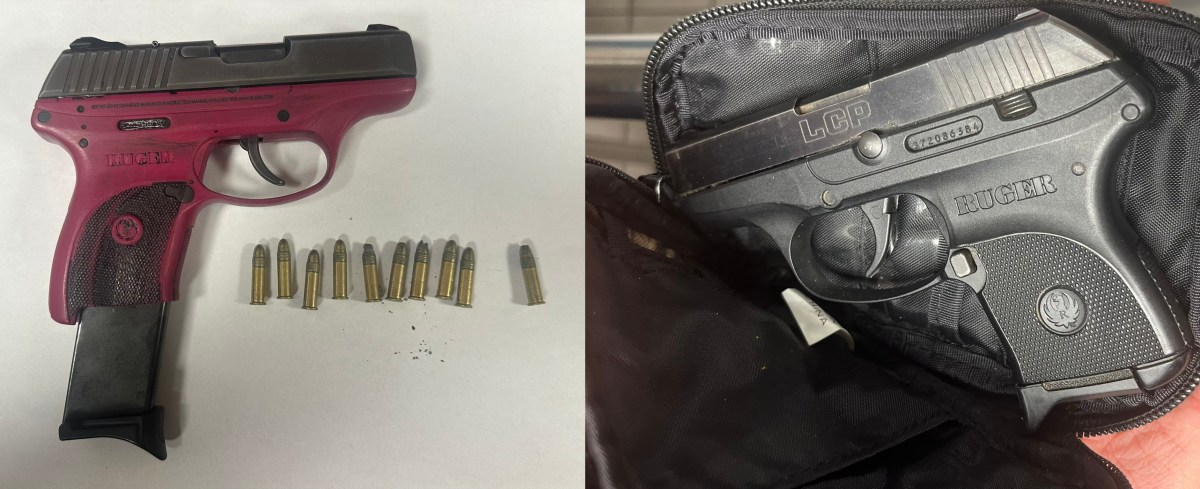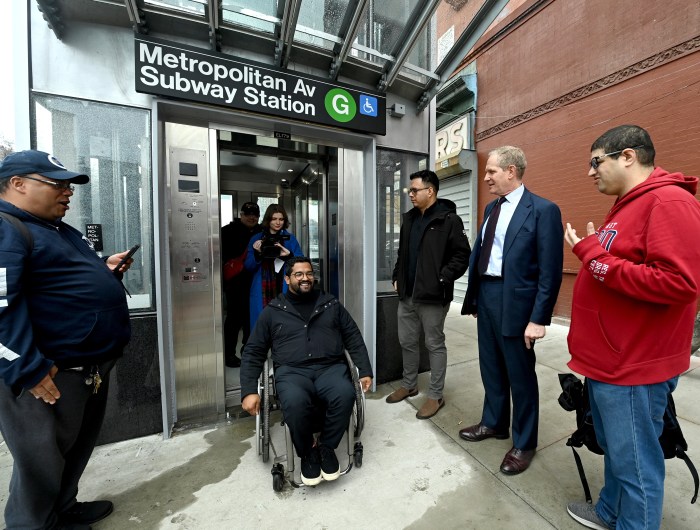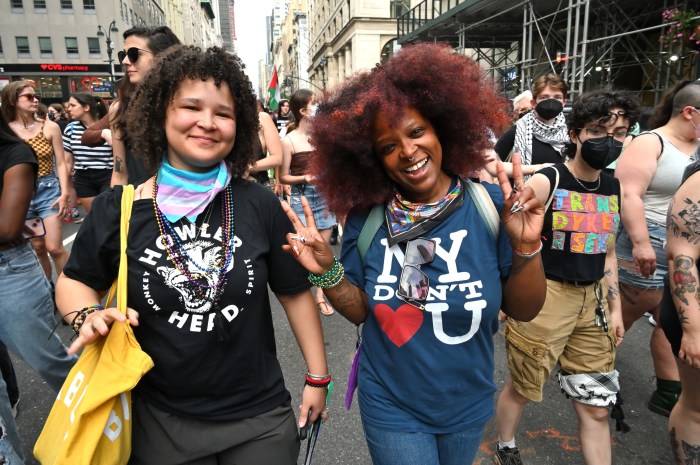State transit officials must install an elevator at Park Slope’s Seventh Avenue subway station as part of their recently unveiled plan to make more hubs accessible across the city, locals and pols demanded.
“The Metropolitan Transportation Authority must include the Seventh Avenue station in any plans for accessibility upgrades,” Councilman Brad Lander (D–Park Slope) said at a Friday rally outside the station.
Lander called on the head of the state-run agency’s local arm, New York City Transit chief Andy Byford, to include the F and G train hub as one of the 50 across the city set to receive accessibility upgrades including elevators as part of the $40-billion so-called Fast Forward plan to modernize the beleaguered system that he revealed in May.
Byford, who said no New Yorker should live further than two stops away from an accessible station in announcing his plan, has yet to name the locations that will be improved.
And Lander said the Seventh Avenue station deserves to be at the top of the list, due to its proximity to Methodist Hospital’s main campus just down the street — as well as the hospital’s new outpatient-care facility set to open on Sixth Street between Seventh and Eighth avenues in 2020 — and the Park Slope Center for Successful Aging, which serves more than 4,000 oldsters each year.
Atlantic Terminal station is currently the area’s nearest elevator-equipped hub, so bringing an elevator to Seventh Avenue would go a long way to opening Brooklyn and beyond to the neighborhood’s disabled residents, who now must schedule trips with transportation service Access-a-Ride 24 hours in advance just to get around, according to one handicapped mom.
“There’s a lot more New York has to offer that I would like to take advantage of,” said Aisling Wharton, who lives two blocks from Seventh Avenue station, and is scooter bound due to chronic-fatigue syndrome.
The Fast Forward plan is not funded, however, and many locals are concerned that its $40-billion price tag underestimates its actual cost, which Park Slope’s Assemblyman suggested is closer to $60 billion.
“I think Andy Byford is very well intentioned, but his Fast Forward plan right now is a 70-page Power Point presentation — it’s not a budget and it is not detailed,” Carroll said.
Lander promised to scrounge up whatever cash he can to help foot the estimated $30-million bill to install an elevator at Seventh Avenue station, but admitted whatever he may contribute from his discretionary budget would only be a drop in the bucket.
“The volume that’s needed is going to be a lot bigger than what we can do from a Council account, and the most important thing is it’s part of a real, systemic approach from the MTA,” the councilman said.
The subway system predates the federal Americans with Disabilities Act of 1990, meaning that only new stations are legally required to be made accessible. But the Authority is currently fighting a class-action lawsuit filed last year on behalf of six organizations for disabled people and several handicapped individuals, which could potentially require all stations be made accessible, according to a plaintiff in the suit, Joe Rappaport, who is also the executive director of the Brooklyn Center For Independence of the Disabled.
And until a settlement is reached that legally requires the state-run agency to make all hubs accessible, Rappaport is skeptical about any promise — including the Fast Forward plan’s pledge to bring elevators to some 50 stations — that isn’t backed by cold hard cash.
“I guess you could say, without a legally binding statement, there’s just no guarantee that these stations, or any others will be made accessible,” he said.
















